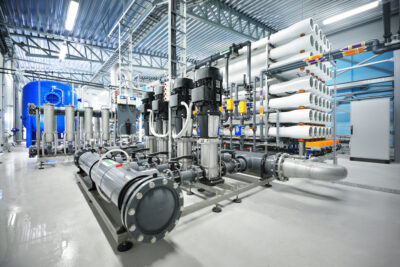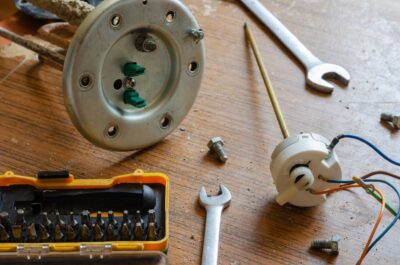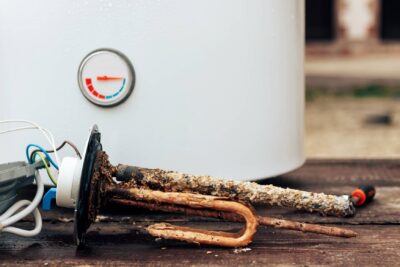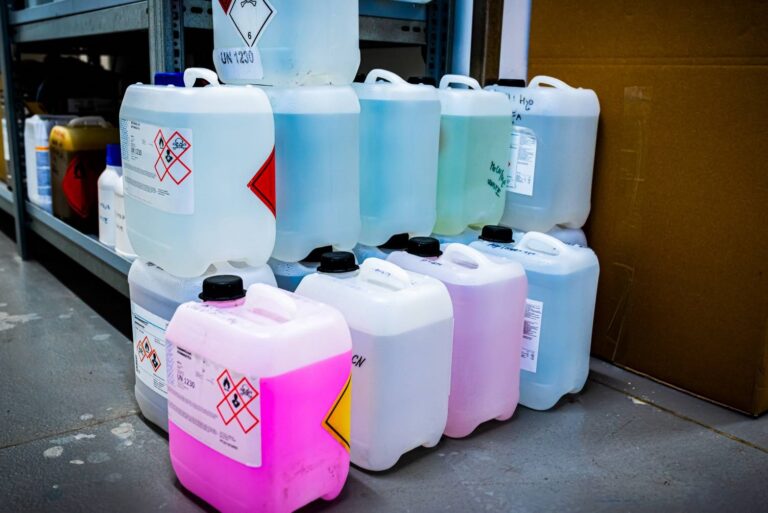What are Anti-Limescale Products and How Do They Work?
Introduction
Limescale buildup is a common issue in areas with hard water, causing damage to household appliances and plumbing systems. To combat this, various anti-limescale products have been developed. But what exactly are these products, and how do they work? This article explores the different types of anti-limescale products available and explains how they help prevent limescale formation.
What are Anti-Limescale Products?
Anti-limescale products are designed to prevent the formation of limescale by altering the properties of hard water or by physically removing the minerals responsible for limescale. These products come in various forms, including chemical additives, magnetic devices, and electronic systems.
Types of Anti-Limescale Products
- Chemical Additives
- Description: These products are added to water or applied directly to surfaces to prevent limescale formation. They typically work by binding to calcium and magnesium ions, preventing them from precipitating out of the water and forming limescale.
- Examples: Anti-limescale powders or tablets that can be added to washing machines, dishwashers, or kettles.
- Magnetic and Electronic Devices
- Description: These devices are installed on water pipes and work by altering the electromagnetic properties of the water. This change prevents calcium and magnesium from crystallizing into limescale.
- Examples: Magnetic water conditioners and electronic descalers that attach to the plumbing system.
- Water Softeners
- Description: Water softeners remove calcium and magnesium ions from water through a process called ion exchange, replacing them with sodium or potassium ions, which do not form limescale.
- Examples: Whole-house water softening systems that treat all the water entering the home.
How Do Anti-Limescale Products Work?
- Chemical Additives: These work by sequestering the minerals that cause limescale, keeping them in a soluble form so they don’t precipitate out and form scale on surfaces.
- Magnetic/Electronic Devices: These devices change the structure of the minerals in the water, preventing them from sticking to surfaces and forming limescale.
- Water Softeners: By removing the hard minerals entirely, water softeners eliminate the potential for limescale formation.
Conclusion
Anti-limescale products are essential tools for preventing the buildup of limescale in homes with hard water. Whether through chemical, magnetic, or softening methods, these products help protect appliances and plumbing systems from the damaging effects of limescale, ensuring their longevity and efficiency.
The Benefits of Using Anti-Limescale Devices in Your Home
Introduction
Limescale buildup can lead to a variety of problems in your home, from reduced efficiency of appliances to potential plumbing issues. Anti-limescale devices offer a solution to these problems, providing numerous benefits that can improve the longevity of your household systems. This article discusses the key benefits of using anti-limescale devices in your home.
Protecting Household Appliances
One of the primary benefits of anti-limescale devices is the protection they offer to household appliances. Limescale can accumulate on the heating elements of appliances like kettles, washing machines, and dishwashers, leading to decreased efficiency and increased energy consumption. By preventing limescale formation, these devices help:
- Increase Appliance Efficiency: Appliances run more efficiently without the insulating effect of limescale on heating elements, which can reduce energy bills.
- Extend Appliance Lifespan: By preventing limescale buildup, anti-limescale devices can help prolong the life of appliances, saving money on repairs and replacements.
Improving Water Flow and Pressure
Limescale can accumulate inside pipes and faucets, leading to reduced water flow and pressure. Anti-limescale devices help maintain optimal water flow by:
- Preventing Clogs: By stopping limescale from forming inside pipes, these devices prevent clogs that can reduce water pressure and lead to costly plumbing repairs.
- Ensuring Consistent Water Pressure: With no limescale buildup to block the flow, you can enjoy consistent water pressure throughout your home.
Reducing Cleaning Time and Effort
Limescale can leave unsightly stains on faucets, showerheads, and tiles, making cleaning a constant chore. Anti-limescale devices reduce the need for frequent cleaning by:
- Preventing Stains: By preventing limescale from forming on surfaces, these devices reduce the appearance of white, chalky stains that require regular scrubbing.
- Simplifying Maintenance: With less limescale to clean, you’ll spend less time and effort maintaining the cleanliness of your bathroom and kitchen.
Enhancing Water Heater Performance
Water heaters are particularly susceptible to limescale buildup, which can reduce their efficiency and increase energy usage. Anti-limescale devices help:
- Improve Heating Efficiency: By preventing limescale from forming on heating elements, these devices ensure that your water heater operates at peak efficiency.
- Reduce Energy Costs: Efficient water heaters consume less energy, leading to lower utility bills over time.
Conclusion
Using anti-limescale devices in your home offers a range of benefits, from protecting your appliances and plumbing to reducing cleaning efforts and lowering energy costs. By preventing limescale buildup, these devices help maintain the efficiency and longevity of your household systems, making them a worthwhile investment for any homeowner.
Natural vs. Chemical Anti-Limescale Solutions: Which is Better?
Introduction
When it comes to combating limescale, homeowners are often faced with the choice between natural and chemical solutions. Each method has its advantages and drawbacks, and choosing the right one depends on various factors, including the severity of limescale buildup and personal preferences. This article compares natural and chemical anti-limescale solutions to help you decide which is better for your needs.
Natural Anti-Limescale Solutions
- Vinegar
- How It Works: Vinegar is a mild acid that can dissolve limescale. It’s commonly used for cleaning kettles, showerheads, and faucets.
- Advantages: Vinegar is non-toxic, environmentally friendly, and inexpensive.
- Drawbacks: It may require multiple applications for heavy limescale deposits and has a strong odor.
- Lemon Juice
- How It Works: The citric acid in lemon juice breaks down limescale, making it easier to wipe away.
- Advantages: Lemon juice is natural, leaves a pleasant scent, and is safe for most surfaces.
- Drawbacks: Like vinegar, it may not be effective on heavy limescale and can be more expensive.
- Baking Soda
- How It Works: Baking soda acts as a mild abrasive that can help scrub away limescale.
- Advantages: Safe, non-toxic, and can be combined with vinegar for enhanced cleaning power.
- Drawbacks: It may not be effective for dissolving limescale on its own and is best used as part of a combined approach.
Chemical Anti-Limescale Solutions
- Descaling Products
- How It Works: Chemical descalers are specifically formulated to dissolve limescale quickly. They contain acids that break down the mineral deposits effectively.
- Advantages: Highly effective, especially for heavy limescale buildup. They work quickly and often with less effort.
- Drawbacks: These products can be harsh, potentially damaging to surfaces, and may contain toxic ingredients.
- Anti-Limescale Tablets
- How It Works: These are added to appliances like washing machines and dishwashers to prevent limescale from forming.
- Advantages: Easy to use, with specific formulations for different appliances.
- Drawbacks: Continuous use is necessary, which can become costly over time.
- Water Softening Systems
- How It Works: Water softeners use ion exchange to remove calcium and magnesium from the water supply, preventing limescale formation.
- Advantages: Long-term solution that addresses the root cause of limescale. Reduces the need for ongoing maintenance.
- Drawbacks: Expensive to install and maintain, and may require professional installation.
Which is Better?
The choice between natural and chemical anti-limescale solutions depends on several factors:
- Environmental Impact: If you’re concerned about the environment, natural solutions like vinegar and lemon juice are preferable as they are biodegradable and non-toxic.
- Effectiveness: For severe limescale buildup, chemical solutions may be more effective, especially when quick results are needed.
- Cost: Natural solutions are generally cheaper and more readily available, making them a cost-effective option for regular maintenance.
- Health and Safety: Natural solutions are safer for homes with children and pets, whereas chemical products may require careful handling and ventilation.
Conclusion
Both natural and chemical anti-limescale solutions have their merits. Natural methods are environmentally friendly and safe, making them ideal for regular maintenance and light cleaning. Chemical solutions, on the other hand, offer powerful results for heavy limescale buildup but come with potential







